hero
 When I first heard about the bizarre phenomenon found under the home of Benjamin Franklin, I thought of a few possibilities. The remains, found in 1998, consisted of 1,200 bones are believed to be from more than 15 human bodies found in the basement of Ben Franklin’s house. Six of the bodies were children. My first thought was, “Please tell me that this is some Indian burial site, or that there is some logical explanation as to why there would be bodies buried in this hero Founding Father’s home.” I have always liked Ben Franklin. I found his “antics” to be so interesting. To say the least, he was a bit strange in his experimentations, and that was enough to make me wonder (and hope it wasn’t so) if Ben Franklin could possibly have some horrid alter ego. He wouldn’t be the first scientist to go off the deep end to experiment on human bodies, but then again, there certainly are people today that have chosen to donate their bodies to science, so why couldn’t that be the case back then. I prayed that was the case.
When I first heard about the bizarre phenomenon found under the home of Benjamin Franklin, I thought of a few possibilities. The remains, found in 1998, consisted of 1,200 bones are believed to be from more than 15 human bodies found in the basement of Ben Franklin’s house. Six of the bodies were children. My first thought was, “Please tell me that this is some Indian burial site, or that there is some logical explanation as to why there would be bodies buried in this hero Founding Father’s home.” I have always liked Ben Franklin. I found his “antics” to be so interesting. To say the least, he was a bit strange in his experimentations, and that was enough to make me wonder (and hope it wasn’t so) if Ben Franklin could possibly have some horrid alter ego. He wouldn’t be the first scientist to go off the deep end to experiment on human bodies, but then again, there certainly are people today that have chosen to donate their bodies to science, so why couldn’t that be the case back then. I prayed that was the case.
At this point, many people would immediately assume that Ben Franklin was some kind of closet killer, who tortured and murdered his victims. It would be thought that the world had been so naive, that we lived in the dark for years, but before you go crafting a murder mystery about him, please be aware that it was revealed that the bodies were used in the study of human anatomy. So, it actually was bodies donated for scientific 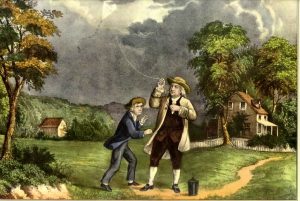 research. I certainly didn’t know that they did that sort of thing back then, but it seems that they did.
research. I certainly didn’t know that they did that sort of thing back then, but it seems that they did.
The house, located in London, England was undergoing some conservation work in 1998, when the bones were discovered. Some of the bodies were dismembered, or had trepanned skulls, which is skulls with holes drilled through them. Ben Franklin had lived home in London for nearly twenty years leading up to the signing of the Declaration of Independence. It was more than 200 years later, when the conservation work uncovered the 15 bodies in the basement, buried in a secret, windowless room beneath the garden. While on could imagine horrible things, “The most plausible explanation is not mass murder, but an anatomy school run by Benjamin Franklin’s young friend and protege, William Hewson.” So, it would seem that Ben Franklin either loaned the home to Hewson (a surgeon), stored the bodies for Hewson, or allowed Hewson to do his scientific experiments in the room in the Franklin house. Whatever the case may be, it is apparently well enough documented that the authorities were satisfied that Ben Franklin wasn’t personally involved.
One such speculation was that “Anatomy was still in its infancy, but the day’s social and ethical mores frowned upon it. … A steady supply of human bodies was hard to come by legally, so Hewson, Hunter, and the field’s other pioneers had to turn to grave robbing—either paying professional ‘resurrection men’ to procure cadavers 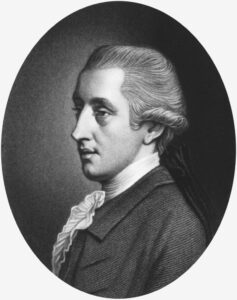 or digging them up themselves—to get their hands on specimens. Researchers think that 36 Craven was an irresistible spot for Hewson to establish his own anatomy lab. The tenant was a trusted friend, the landlady was his mother-in-law, and he was flanked by convenient sources for corpses. Bodies could be smuggled from graveyards and delivered to the wharf at one end of the street or snatched from the gallows at the other end. When he was done with them, Hewson simply buried whatever was left of the bodies in the basement, rather than sneak them out for disposal elsewhere and risk getting caught and prosecuted for dissection and grave robbing.” Some people speculate that Ben Franklin knew about the goings on, but was not personally involved, still, they thought he might have gone to the lab a few times to check out the proceedings. I hate to think that he knew anything about it, and I would prefer to think that the study of anatomy was done in his absence, but I suppose that our modern-day anatomy studies and autopsies were probably pioneered in a basement somewhere.
or digging them up themselves—to get their hands on specimens. Researchers think that 36 Craven was an irresistible spot for Hewson to establish his own anatomy lab. The tenant was a trusted friend, the landlady was his mother-in-law, and he was flanked by convenient sources for corpses. Bodies could be smuggled from graveyards and delivered to the wharf at one end of the street or snatched from the gallows at the other end. When he was done with them, Hewson simply buried whatever was left of the bodies in the basement, rather than sneak them out for disposal elsewhere and risk getting caught and prosecuted for dissection and grave robbing.” Some people speculate that Ben Franklin knew about the goings on, but was not personally involved, still, they thought he might have gone to the lab a few times to check out the proceedings. I hate to think that he knew anything about it, and I would prefer to think that the study of anatomy was done in his absence, but I suppose that our modern-day anatomy studies and autopsies were probably pioneered in a basement somewhere.

 My grandson, Caalab Royce, who lives in Bellingham, Washington, is such a great guy. When Caalab was in middle school, he decided that he wanted to learn to play the guitar. His dad, Travis Royce played the guitar, and Travis was, and still is, Caalab’s hero. So, when the class was offered, he jumped at the chance to actually learn to play, and not just to try to imitate what his dad was doing. Let’s face it, learning to play is much better than stumbling around with it. Which is exactly what any strumming I could do would be called. Caalab has a natural talent though, and I love to listen to him and his dad play. I think they are both very good. They have a little band that practices in his parents’ garage/T&Avern, which is a very cool place named after its owners, Travis and Amy Royce. Of course, when the weather is nice, they practice in the Royce back yard and garden. Either way, I love to listen whenever I am visiting.
My grandson, Caalab Royce, who lives in Bellingham, Washington, is such a great guy. When Caalab was in middle school, he decided that he wanted to learn to play the guitar. His dad, Travis Royce played the guitar, and Travis was, and still is, Caalab’s hero. So, when the class was offered, he jumped at the chance to actually learn to play, and not just to try to imitate what his dad was doing. Let’s face it, learning to play is much better than stumbling around with it. Which is exactly what any strumming I could do would be called. Caalab has a natural talent though, and I love to listen to him and his dad play. I think they are both very good. They have a little band that practices in his parents’ garage/T&Avern, which is a very cool place named after its owners, Travis and Amy Royce. Of course, when the weather is nice, they practice in the Royce back yard and garden. Either way, I love to listen whenever I am visiting.
Caalab has many talents, among them comedy. He always could tell a joke, never forgetting the punch line, 
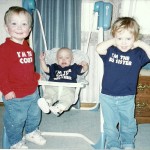 even when he was a little boy, but even more cool is his ability to just be funny. In fact, Caalab hates to be serious. Nevertheless, he has the ability to be serious when it comes to his job as kitchen manager at Red Robin in Bellingham. Let’s face it, kitchen manager at any restaurant is not easy. People in that type of job often don’t want to work. Oh, they want to get paid, but they don’t always want to work for that paycheck. Caalab, as the kitchen manager, has to pick up the slack when one of his kitchen workers doesn’t show up for a shift or when they quit with no notice. It seems to be a common problem in the food industry, no matter what minimum wage is. I think it’s common in many industries. People want a paycheck…but they don’t want a job!!!
even when he was a little boy, but even more cool is his ability to just be funny. In fact, Caalab hates to be serious. Nevertheless, he has the ability to be serious when it comes to his job as kitchen manager at Red Robin in Bellingham. Let’s face it, kitchen manager at any restaurant is not easy. People in that type of job often don’t want to work. Oh, they want to get paid, but they don’t always want to work for that paycheck. Caalab, as the kitchen manager, has to pick up the slack when one of his kitchen workers doesn’t show up for a shift or when they quit with no notice. It seems to be a common problem in the food industry, no matter what minimum wage is. I think it’s common in many industries. People want a paycheck…but they don’t want a job!!!
Caalab has always been a blessing, even if his sister, Shai Royce couldn’t always see the funny side of things, especially when the joke was on her. Nevertheless, these days these two are best friends. Oh, don’t get me wrong, they can argue, but they are still best friends. I always knew they would be, and I told Shai that, but as 
 a young girl, who was always teased by her little brother, she just couldn’t see it. Caalab did love to tease her, but he would have done anything for her too. She was his big sis, and nobody better bother his big sis. For her part, Shai would also do just about anything for her brother too, and she trusts him implicitly, which is quite evident in the fact that for his birthday, she actually bought him a real sword. It is a collector’s sword, but a sword nevertheless, and Caalab thought it was the coolest thing ever. Today is Caalab’s 26th birthday. Happy birthday Caalab!! Have a great day!! We love you!!
a young girl, who was always teased by her little brother, she just couldn’t see it. Caalab did love to tease her, but he would have done anything for her too. She was his big sis, and nobody better bother his big sis. For her part, Shai would also do just about anything for her brother too, and she trusts him implicitly, which is quite evident in the fact that for his birthday, she actually bought him a real sword. It is a collector’s sword, but a sword nevertheless, and Caalab thought it was the coolest thing ever. Today is Caalab’s 26th birthday. Happy birthday Caalab!! Have a great day!! We love you!!
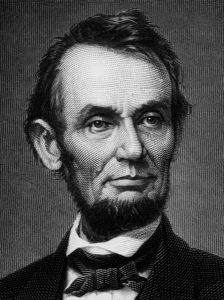
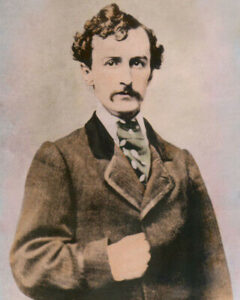 John Wilkes Booth was an actor, and as such, he had an expectation of applause following a performance. That is just what he thought the assassination of President Lincoln was. No, he didn’t think it was fake. He knew he was murdering the President of the United States, but he somehow thought people would consider it one of his greatest performances…the crowning moment of his stage career. It never occurred to him that the people who had loved him as an actor would suddenly turn against him.
John Wilkes Booth was an actor, and as such, he had an expectation of applause following a performance. That is just what he thought the assassination of President Lincoln was. No, he didn’t think it was fake. He knew he was murdering the President of the United States, but he somehow thought people would consider it one of his greatest performances…the crowning moment of his stage career. It never occurred to him that the people who had loved him as an actor would suddenly turn against him.
At the very least, he expected to be greeted with applause and support by those sympathetic to the Confederacy. Instead, he found, much to his shock and great dismay, that he was a hounded man, and few wanted to associate with him. Oh, the loyalists to the Confederacy did their duty by him, but with great reluctance. He first encountered this reaction when he and David Herold, who was an American pharmacist’s assistant and Wilkes accomplice in the assassination of Abraham Lincoln, stumbled upon a man in the dark, while searching for the home of Colonel Cox. The man, a local named Oswell Swann, reluctantly agreed to guide then to the Cox home, but only if he received payment for his services. He considered it just reward for the risk he was taking. Afterward, Swann collected his fee and vanished into the night, leaving the fugitives to the “hospitality” of Colonel Cox. That “hospitality” consisted of a few supplies, including whiskey, and a servant to lead the men to a hiding place in the woods. Cox certainly didn’t want these men to be found in his house.
Cox informed Booth that he was to “remain hidden in the woods until contacted.” Then Cox sent for Thomas Jones, a Confederate agent with experience in smuggling spies and information across the Potomac River into Virginia. Jones agreed to get them out and guide them across the Potomac, for a fee, but when he visited the fugitives in the woods, where they hid in a pine thicket, he told them it would be several days before he could do so. The manhunt for Booth and Herold was massive. Federal troops combed the area, searching properties and interrogating citizens over whether they had seen two men traveling together. Booth was very distressed, because instead of receiving the expected support and appreciation of the south, Booth found himself confined to a pine thicket!! Jones provided the men with newspapers, from which Booth discovered that he was widely considered a villainous murderer, rather than the Confederate hero he had expected to be. He wrote about his “horrible” fate, and the “injustice” of it all, in a diary he kept in an appointment book.
Federal authorities had most of the conspirators who had planned to kidnap Abraham Lincoln in custody by April 20, 1865. Several were not party to the assassination, but because they were involved in the kidnapping plans, they were held anyway. Three men were still not in custody…Booth, Herold, and John Surratt remained at large. The War Department put out wanted poster, released in Washington on April 20, offering a $50,000 reward for Booth, and $25,000 apiece for Herold and Surratt. By then, Surratt was hiding out in Canada, even though he knew that his mother was being held in federal custody. Coward that he was, Surratt was making plans to flee to Europe. Booth and Herold continued to cower in a pine thicket, relatively helpless. They didn’t dare leave, because they would be seen and immediately arrested. A dejected Booth spent his time drinking whiskey and scribbling in his makeshift diary over the unfairness of his reception. He believed his action had made him a martyr to the Confederate cause.
When the fugitives finally attempted to cross the Potomac, on about April 21, Jones’s guidance consisted of verbal instructions directing them to a waiting boat. These men had no boating experience, and the night was windy. The tides and swift current didn’t help matters either. Nor did the gunboats in the area. Booth whined into his diary, “last night being chased by gunboats till I was forced to return wet, cold, and starving.” Needless to say, the crossing was a failure, but Booth’s overly dramatic entry exaggerated what may have been an encounter with USS Juniper, positioned in the river near their point of crossing. Juniper’s log did not include a report of chasing anything that night. Booth likely spotted the gunboat, and in a panic, returned to the Maryland shore. Booth’s fugitive days ended when he was caught on April 26, 1865, near Port Royal, Virginia. As Booth and his co-conspirator, David Herold, cowered inside a barn, the soldiers demanded that they surrender. John Wilkes Booth died in agonizing fashion at the hands of Union soldiers in Port Royal, Virginia, 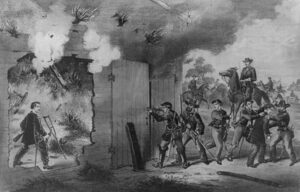
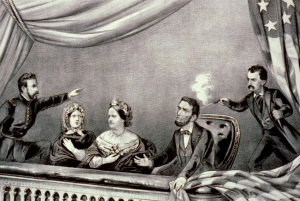 two weeks after he assassinated Abraham Lincoln. When the Union soldiers demanded their surrender, Herold complied. But Booth refused. He didn’t leave the barn until one of the soldiers set it on fire. As he tried to sneak out in the shadows and flame, a shot cracked through the silent night…and found its mark. Booth briefly held on to life, but in the end, the bullet would be his demise…in true disgraced style.
two weeks after he assassinated Abraham Lincoln. When the Union soldiers demanded their surrender, Herold complied. But Booth refused. He didn’t leave the barn until one of the soldiers set it on fire. As he tried to sneak out in the shadows and flame, a shot cracked through the silent night…and found its mark. Booth briefly held on to life, but in the end, the bullet would be his demise…in true disgraced style.

 My nephew, Riley Birky is a man who has a big heart. He truly cares about the people around him, and while he is not always able to do anything to fix the problems his friends might have, that certainly doesn’t keep him from having a deep desire to help if he can. Sometimes, I think that carrying around the…almost burden of having such a big heart can be hard on the guy who has said big heart. When they are unable to change the outcome they tend to carry the weight of it, as if it were their failure. It isn’t, of course, but it is how they tend to feel. Nevertheless, Riley has a good group of buddies, and they have good times together.
My nephew, Riley Birky is a man who has a big heart. He truly cares about the people around him, and while he is not always able to do anything to fix the problems his friends might have, that certainly doesn’t keep him from having a deep desire to help if he can. Sometimes, I think that carrying around the…almost burden of having such a big heart can be hard on the guy who has said big heart. When they are unable to change the outcome they tend to carry the weight of it, as if it were their failure. It isn’t, of course, but it is how they tend to feel. Nevertheless, Riley has a good group of buddies, and they have good times together.
Riley has grown into a good man, who lives on his own now, and works to support himself. He is a responsible worker, who is well liked. He is working for a fencing company, as an installer. Riley has never been afraid of hard work, and has done a variety of heavy duty jobs in his lifetime. As an adult, he has proven himself to be capable and reliable. I think he will do well in whatever job he does or career he chooses.
Riley loves his mom, my sister-in-law, Rachel Schulenberg very much. She has been supportive of him all his 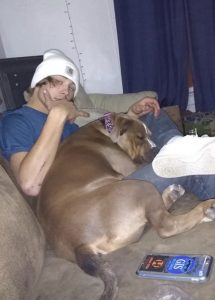
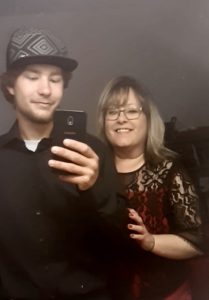 life, and he has nothing but respect for her. Oh, they have their disagreements, but when it comes right down to it, his mom is his hero, as well as his biggest cheerleader. He knows that he can always count on her to be there for him…even if that means encouraging him do the right things. In reality, that is what most kids want to do anyway.
life, and he has nothing but respect for her. Oh, they have their disagreements, but when it comes right down to it, his mom is his hero, as well as his biggest cheerleader. He knows that he can always count on her to be there for him…even if that means encouraging him do the right things. In reality, that is what most kids want to do anyway.
Riley has a dog that he loves very much. Nala is an American Bully Pitbull Terrier. Nala came to Riley as a puppy, but she is growing like a weed. She has a beautiful, soft brown coat that is very shiny. She loves Riley very much, and the feeling is mutual. Riley has always had a heart for dogs, and Nala is Riley’s baby girl. Their companionship makes both of them very happy. Today is Riley’s birthday. Happy birthday Riley!! Have a great day!! We love you!!

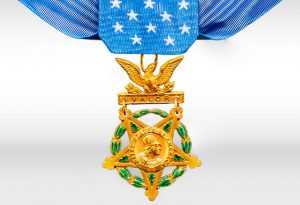 In a war, there are many heroes…some whose acts of courage and selflessness were so amazing that many felt they needed to receive a different medal…one that paid homage to the incredible things they did. Often these medals were even given posthumously because the brave act of the hero, cost the recipients their lives. Before 1861, no such medal existed. President Abraham Lincoln didn’t think that was right. There were many brave soldiers, and while not all brave acts would qualify for the medal of honor, the most self sacrificing of them would…the ones who set aside their own safety to protect the lives of others.
In a war, there are many heroes…some whose acts of courage and selflessness were so amazing that many felt they needed to receive a different medal…one that paid homage to the incredible things they did. Often these medals were even given posthumously because the brave act of the hero, cost the recipients their lives. Before 1861, no such medal existed. President Abraham Lincoln didn’t think that was right. There were many brave soldiers, and while not all brave acts would qualify for the medal of honor, the most self sacrificing of them would…the ones who set aside their own safety to protect the lives of others.
For that reason, President Abraham Lincoln signed into law a measure calling for the awarding of a US Army Medal of Honor, in the name of Congress, “to such noncommissioned officers and privates as shall most distinguish themselves by their gallantry in action, and other soldier-like qualities during the present insurrection.” The previous December, Lincoln had approved a provision creating a US Navy Medal of Valor, which was the basis of the Army Medal of Honor created by Congress on July 12, 1862. War puts men and women into situations whereby the only choices are kill or be killed. That can be a scary proposition. These soldiers do not do what they do in order to receive a medal. In fact, a medal rarely crosses their minds at all. The first US Army soldiers to receive what would become the nation’s highest military honor were six members of a Union raiding party who in 1862 penetrated deep into Confederate territory to destroy bridges and railroad tracks between Chattanooga, Tennessee, and Atlanta, Georgia.
In 1863, the Medal of Honor was made a permanent military decoration available to all members, including commissioned officers, of the US military. It is conferred upon those who have distinguished themselves in actual combat at risk of life beyond the call of duty. Since its creation, during the Civil War, more than 3,400 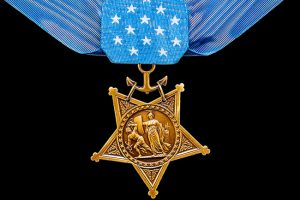
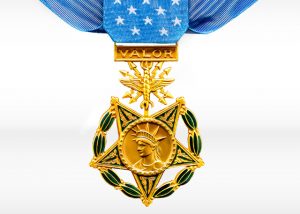 men and one woman, Dr Mary Walker, have received the Medal of Honor for heroic actions in US military conflict. These people gave whatever it took to perform their duties. They were the best of the best, and the medal of honor was the best honor we could bestow on them. Of course, in Lincoln’s time, there was no air force, so that medal came later, as did the medals from the other branches of service, including the Coast Guard.
men and one woman, Dr Mary Walker, have received the Medal of Honor for heroic actions in US military conflict. These people gave whatever it took to perform their duties. They were the best of the best, and the medal of honor was the best honor we could bestow on them. Of course, in Lincoln’s time, there was no air force, so that medal came later, as did the medals from the other branches of service, including the Coast Guard.
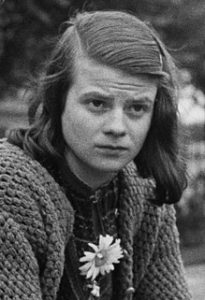 When we think of heroes during the Nazi years, we think mostly of men, but there were a few women who were real heroes too. One such woman, Sophia Magdalena Scholl, who was born on May 9, 1921, was a German student, who was also a serious anti-Nazi political activist. She was active within the White Rose non-violent resistance group in Nazi Germany. Scholl was the fourth of six children born to Magdalena (Müller) and liberal politician and ardent Nazi critic Robert Scholl. Her father was the mayor of her hometown of Forchtenberg am Kocher in the Free People’s State of Württemberg, at the time of her birth.
When we think of heroes during the Nazi years, we think mostly of men, but there were a few women who were real heroes too. One such woman, Sophia Magdalena Scholl, who was born on May 9, 1921, was a German student, who was also a serious anti-Nazi political activist. She was active within the White Rose non-violent resistance group in Nazi Germany. Scholl was the fourth of six children born to Magdalena (Müller) and liberal politician and ardent Nazi critic Robert Scholl. Her father was the mayor of her hometown of Forchtenberg am Kocher in the Free People’s State of Württemberg, at the time of her birth.
Scholl was brought up in the Lutheran church. She entered junior or grade school at the age of seven, and was considered an intelligent child who learned easily. Her childhood was a happy and carefree one. In 1930, the family moved to Ludwigsburg and then two years later to Ulm where her father had a business consulting office. These were definitely the best years of her life.
In 1932, after Scholl started attending a secondary school for girls, at the age of twelve, she chose to join the Bund Deutscher Mädel (League of German Girls), as did most of her classmates. It was as common as joining the girl scouts was in the United States. Her initial enthusiasm gradually gave way to criticism. She was aware of the dissenting political views of her father, friends, and some teachers. Even her own brother Hans, who once eagerly participated in the Hitler Youth program, became entirely disillusioned with the Nazi Party. Sophia was quickly learning of the horrors of Hitler and his Nazi regime. Political attitude had become an essential criterion in her choice of friends. The arrest of her brothers and friends in 1937 for participating in the German Youth Movement left a strong impression on her.
In 1943, with the Nazi movement in full swing, Sophia and her brother, Hans were at the University of Munich distributing anti-war leaflets when they were arrested and charged with high treason. Of course, handing out  anti-war leaflets in the United States would never be considered cause for a high treason conviction, but then Sophia and her brother did not live in the United States. In the People’s Court before Judge Roland Freisler on 22 February 1943, Scholl was recorded as saying these words, “Somebody, after all, had to make a start. What we wrote and said is also believed by many others. They just don’t dare express themselves as we did.” There was no testimony allowed for the defendants; this was their only defense. The brother and sister were subsequently convicted of the high treason charges, and as a result, were executed by guillotine on February 22, 1943. Since the 1970s, Scholl has been extensively commemorated for her anti-Nazi resistance work.
anti-war leaflets in the United States would never be considered cause for a high treason conviction, but then Sophia and her brother did not live in the United States. In the People’s Court before Judge Roland Freisler on 22 February 1943, Scholl was recorded as saying these words, “Somebody, after all, had to make a start. What we wrote and said is also believed by many others. They just don’t dare express themselves as we did.” There was no testimony allowed for the defendants; this was their only defense. The brother and sister were subsequently convicted of the high treason charges, and as a result, were executed by guillotine on February 22, 1943. Since the 1970s, Scholl has been extensively commemorated for her anti-Nazi resistance work.
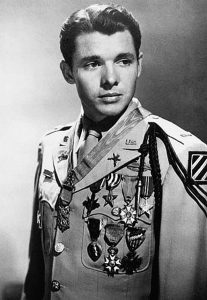 Recently, I found out that I am related to Audie Murphy, who was one of the most decorated American combat soldiers in World War II. As it turns out, he is my 7th cousin 3 times removed, on my dad’s side of the family. We share the same grandfather, Thomas Fuller, who is my 9th great grandfather, and Audie’s 7th great grandfather. Audie became an actor in 1948 and 1969, during which time he was beloved by many people, including my parents. I think they would have been very excited to find out that he was actually related to them, but then I guess they already know it by now. While his acting was impressive, it was his military career that always impressed my parents.
Recently, I found out that I am related to Audie Murphy, who was one of the most decorated American combat soldiers in World War II. As it turns out, he is my 7th cousin 3 times removed, on my dad’s side of the family. We share the same grandfather, Thomas Fuller, who is my 9th great grandfather, and Audie’s 7th great grandfather. Audie became an actor in 1948 and 1969, during which time he was beloved by many people, including my parents. I think they would have been very excited to find out that he was actually related to them, but then I guess they already know it by now. While his acting was impressive, it was his military career that always impressed my parents.
Audie Leon Murphy, was born on June 20, 1925 to Josie Bell Killian and Emmett Berry Murphy in Kingston, Texas. He was born into a large family of sharecroppers. Before long, his father abandoned them, and then his mother died when he was a teenager. Murphy left school in fifth grade to pick cotton and find other work to help support his family. He was a skilled rifleman, and hunting became a necessity for putting food on the table.
After the Japanese attacked Pearl Harbor in 1941, Murphy’s decided that he wanted to help, but he was too young. His older sister helped him to falsify documentation about his birthdate in order to meet the minimum-age requirement for enlisting in the military, because he was only 16 at the time. He was turned down by the Navy and the Marine Corps, so he enlisted in the Army. He first saw action in the 1943 Allied invasion of Sicily. Then, in 1944 he participated in the Battle of Anzio, the liberation of Rome, and the invasion of southern France. Murphy fought at Montélimar and led his men on a successful assault at the L’Omet quarry near Cleurie in northeastern France in October. He received every military combat award for valor available from the U.S. Army, as well as French and Belgian awards for heroism. Murphy received the Medal of Honor for valor that he demonstrated at the age of 19 for single-handedly holding off an entire company of German soldiers for an 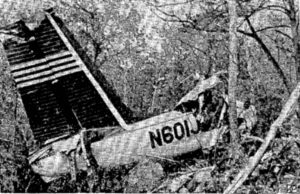 hour at the Colmar Pocket in France in January 1945, then leading a successful counterattack while wounded and out of ammunition.
hour at the Colmar Pocket in France in January 1945, then leading a successful counterattack while wounded and out of ammunition.
After his acting career ended, Murphy, like many actors without work, experienced money problems, but still, he refused offers to appear in alcohol and cigarette commercials, because he did not want to set a bad example. He never let Hollywood take away his high moral standards. Murphy died in a plane crash in Virginia in 1971, shortly before his 46th birthday. Such a sad ending to an amazing life. He was interred with full military honors at Arlington National Cemetery. His grave is one of the most visited sites in the cemetery.
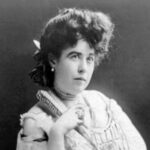 It’s strange…how often society prefers old money to new money. Maybe these days it’s not as common, but in the late 1800s, it was a little bit more common. That was the world Margaret Tobin grew up in. Who is Margaret Tobin, you might ask. Well, we didn’t really remember her as Margaret Tobin, but rather as Molly Brown…or more likely as The Unsinkable Molly Brown. That’s because on this day April 15, 1912, Molly Brown not only survived the sinking of the Titanic, but she heroically saved other people in the water, and kept the people in the lifeboat calm with her stories of life in the west.
It’s strange…how often society prefers old money to new money. Maybe these days it’s not as common, but in the late 1800s, it was a little bit more common. That was the world Margaret Tobin grew up in. Who is Margaret Tobin, you might ask. Well, we didn’t really remember her as Margaret Tobin, but rather as Molly Brown…or more likely as The Unsinkable Molly Brown. That’s because on this day April 15, 1912, Molly Brown not only survived the sinking of the Titanic, but she heroically saved other people in the water, and kept the people in the lifeboat calm with her stories of life in the west.
Molly was born the daughter of an impoverished ditch-digger. As a teenager, Molly went West to join her brother, who was working in the booming silver mining town of Leadville, Colorado. While there, the manager of a local silver mine, James J Brown, noticed her, and they fell in love. The couple married in 1886, and a short time later, James Brown discovered a large deposit of gold. They quickly became very wealthy. They moved to Denver, and tried unsuccessfully to take what should have been their rightful place in society, but the high society of the time…old money, just weren’t prepared to let these unstart, new money people with little social grooming into their ranks. Apparently Molly was a little too flamboyant for the stuffy, old money high society people. She was a little too much for her husband too, because they soon separated, and with her estranged husband’s financial support, Molly was able to live comfortably…for a time anyway…until most of the money ran out.
Molly left Denver and decided to travel. The Eastern elite, didn’t seem to mind Molly’s flamboyance, and soon accepted her as one of them. Socially prominent eastern families like the Astors and Vanderbilts prized her frank western manners and her thrilling stories of frontier life. It was her friendship with these people that brought her to the Titanic, on that fateful trip, but it was Molly herself and her heroic ways that brought her fame, even though 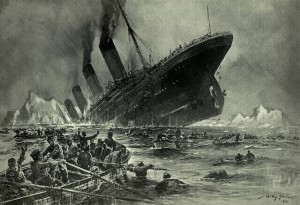 she obviously wasn’t the only woman who survived the sinking. After the ship hit an iceberg and began to sink, Brown was tossed into a lifeboat. She took command of the little boat and helped rescue a drowning sailor and other victims. To keep spirits up, she regaled the anxious survivors with stories of her life in the Old West. One the newspapers heard of her heroics, she gained national fame. She was dubbed “the unsinkable Mrs. Brown” and she became an international heroine. Before very long though, the money ran out, and she faded into obscurity, dying a woman of modest means in New York City in 1932. It was the Broadway musical that would revive her claim to fame, and change her title to The Unsinkable Molly Brown.
she obviously wasn’t the only woman who survived the sinking. After the ship hit an iceberg and began to sink, Brown was tossed into a lifeboat. She took command of the little boat and helped rescue a drowning sailor and other victims. To keep spirits up, she regaled the anxious survivors with stories of her life in the Old West. One the newspapers heard of her heroics, she gained national fame. She was dubbed “the unsinkable Mrs. Brown” and she became an international heroine. Before very long though, the money ran out, and she faded into obscurity, dying a woman of modest means in New York City in 1932. It was the Broadway musical that would revive her claim to fame, and change her title to The Unsinkable Molly Brown.
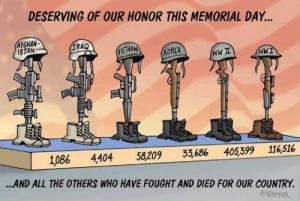 Our country has been involved in so many wars in its relatively short history, protecting both our freedom and many other countries from the oppression imposed by so many evil dictators and nations. Some people don’t think the United States should be the guardian of the nations, but when push comes to shove, the United States is always the one they call to come in and save them. In all reality, the only countries who wish we would just stay out of things, are the ones who have overstepped their boundaries, and are trying to do evil in the helpless nations they have occupied.
Our country has been involved in so many wars in its relatively short history, protecting both our freedom and many other countries from the oppression imposed by so many evil dictators and nations. Some people don’t think the United States should be the guardian of the nations, but when push comes to shove, the United States is always the one they call to come in and save them. In all reality, the only countries who wish we would just stay out of things, are the ones who have overstepped their boundaries, and are trying to do evil in the helpless nations they have occupied.
Of course, no military machine can function without the sacrifice in time and lives of people. Military men and women who are willing to make that sacrifice are a rare breed indeed. True, in years past there was a draft, but even then, there were those who volunteered, like my dad and many others. They saw a need, and knew that they had to answer the call to duty.
Over the course of the major wars the United States has been involved in beginning at World War I, we have lost a total of 619,300 men and women. That is an astounding number of people. Fighting evil is a costly business, both in money, and more importantly in the lives we have lost. Nevertheless, if we allow evil to prevail, we are in a far worse position. That is something every soldier knows all too well. It is what brings them to the point of making the decision to serve…to fight, and give their lives if necessary. It isn’t that they don’t know what they are getting into, because they do. They know that as a soldier, they will be taking the 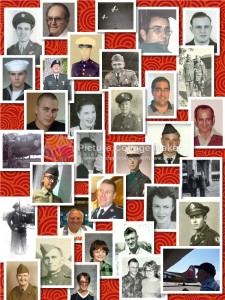 ultimate chance with their life, and they know that they may lose their life. And yet they serve. That is the picture of a true hero.
ultimate chance with their life, and they know that they may lose their life. And yet they serve. That is the picture of a true hero.
There are those who condemn our soldiers for their sacrifice, those who protest, and scream hate at them, but what they don’t really understand is that their very right to protest, scream, and even hate, comes from the fight our soldiers have waged to protect that very freedom. It is a tough job, and often thankless, but they fight because they can see what is right and what is wrong. It is wrong for anyone to steal the freedoms of another human being, and it is wrong for them to try to force their will on others. Soldiers have the vision to see this, and even when hate is aimed at them, they will fight for the rights of those who hate. Yes, soldiers are a rare breed, and they are heroes. They deserve our respect, and they deserve the honor and respect that this day is all about. Happy Memorial Day!! Be sure to thank a Veteran today.
 When I asked my niece, Andrea Beach about her thoughts on her mom, my sister, Caryl Reed, her first words were…”She is my hero!” During her children’s childhood, Caryl spent a lot of time as a single mom, while her ex-husband was in the Navy and often away on cruises for as much as a year at a time. Sometimes they were able to come home and spend that year here in Casper, but as the kids got older, moving from school to school wasn’t always easy, so she stayed in Oak Harbor, Washington, and later, Idaho Falls, Idaho. It was a big job, but one she did well, according to Andrea. Having one parent deployed is a tough situation to deal with for a kid, but it is one that was made less difficult for Andrea by her hero…her mom.
When I asked my niece, Andrea Beach about her thoughts on her mom, my sister, Caryl Reed, her first words were…”She is my hero!” During her children’s childhood, Caryl spent a lot of time as a single mom, while her ex-husband was in the Navy and often away on cruises for as much as a year at a time. Sometimes they were able to come home and spend that year here in Casper, but as the kids got older, moving from school to school wasn’t always easy, so she stayed in Oak Harbor, Washington, and later, Idaho Falls, Idaho. It was a big job, but one she did well, according to Andrea. Having one parent deployed is a tough situation to deal with for a kid, but it is one that was made less difficult for Andrea by her hero…her mom.
 Andrea says that she is so impressed with her mother’s faith and her walk with God. She is Andrea’s inspiration and role model. Caryl has, as have we all, been raised in the church, and our walk with the Lord is the guiding light of our lives. We would not want to walk this Earth without God in our lives, because to walk without God is to truly walk alone.
Andrea says that she is so impressed with her mother’s faith and her walk with God. She is Andrea’s inspiration and role model. Caryl has, as have we all, been raised in the church, and our walk with the Lord is the guiding light of our lives. We would not want to walk this Earth without God in our lives, because to walk without God is to truly walk alone.
Andrea told about the kind of role model her mother was. To Andrea, Caryl seemed a lot like Mary Poppins, because she was so sweet and pure. She always found a respectable way to handle situations, refusing to resort to things like cussing. Once when Andrea was being picked on, Caryl told her to tell those people to “keep their minds out of the gutter”, to which Andrea said, “That’s just what I told them.” Apparently, Caryl had mentioned that people should keep their minds out of the gutter before. That was part of the upbringing  my sisters and I received from our parents. Cussing was not allowed in our home, and isn’t a part of our lives now either. Like our parents, we all feel like there are ways of expressing ourselves without resorting to cussing…and they were right. I still don’t think cussing is a necessary part of communication.
my sisters and I received from our parents. Cussing was not allowed in our home, and isn’t a part of our lives now either. Like our parents, we all feel like there are ways of expressing ourselves without resorting to cussing…and they were right. I still don’t think cussing is a necessary part of communication.
Caryl is blessed to be married to her best friend and the love of her life, Mike Reed. Andrea says, “They are madly in love and they are a perfect fit.” I think that is such a true statement. In her tribute, Andrea also correctly stated that Caryl “would do anything for her family and those she loves.” And that is a true statement too. Today is Caryl’s birthday. Happy birthday Caryl!! Have a great day!! We love you!!

